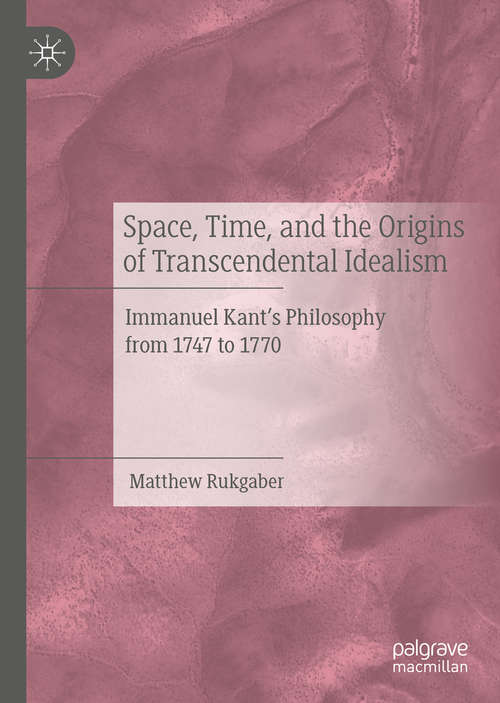Space, Time, and the Origins of Transcendental Idealism: Immanuel Kant’s Philosophy from 1747 to 1770 (1st ed. 2020)
By:
Sign Up Now!
Already a Member? Log In
You must be logged into Bookshare to access this title.
Learn about membership options,
or view our freely available titles.
- Synopsis
- This book provides an account of the unity of Immanuel Kant’s early metaphysics, including the moment he invents transcendental idealism. Matthew Rukgaber argues that a division between “two worlds”—the world of matter, force, and space on the one hand, and the world of metaphysical substances with inner states and principles preserved by God on the other—is what guides Kant’s thought. Until 1770 Kant consistently held a conception of space as a force-based material product of monads that are only virtually present in nature. As Rukgaber explains, transcendental idealism emerges as a constructivist metaphysics, a view in which space and time are real relations outside of the mind, but those relations are metaphysically dependent on the subject. The subject creates the simple “now” and “here,” thus introducing into the intrinsically indeterminate and infinitely divisible continua of nature a metric with transformation rules that make possible all individuation and measurement.
- Copyright:
- 2020
Book Details
- Book Quality:
- Publisher Quality
- ISBN-13:
- 9783030607425
- Related ISBNs:
- 9783030607418
- Publisher:
- Springer International Publishing
- Date of Addition:
- 12/26/20
- Copyrighted By:
- Springer
- Adult content:
- No
- Language:
- English
- Has Image Descriptions:
- No
- Categories:
- Nonfiction, Philosophy
- Submitted By:
- Bookshare Staff
- Usage Restrictions:
- This is a copyrighted book.
